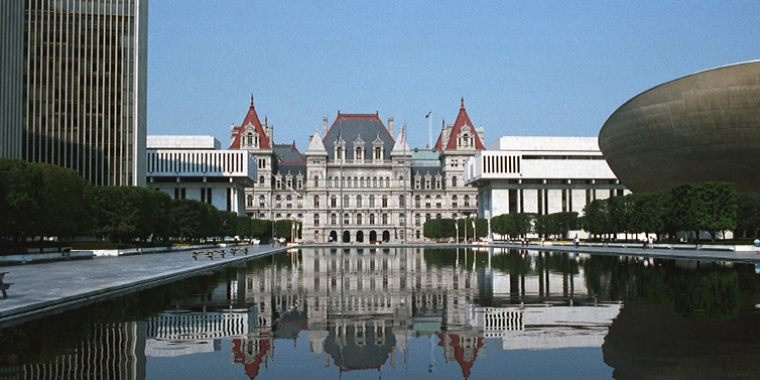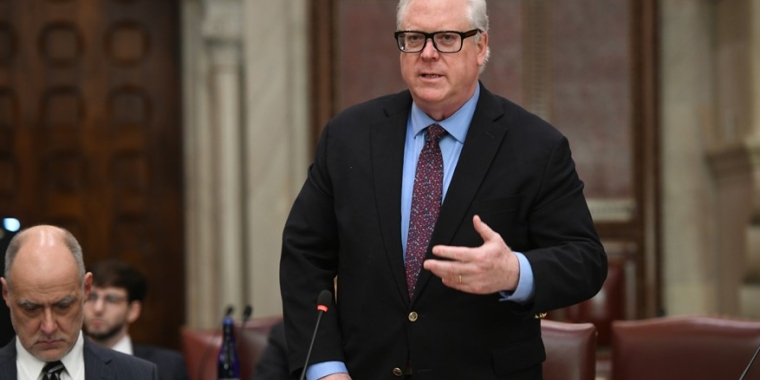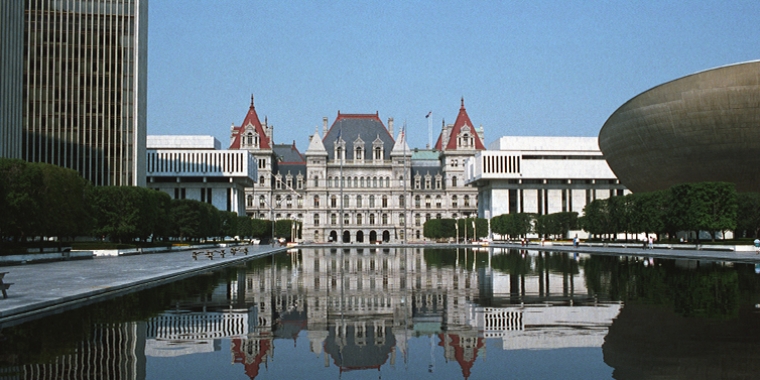
O’Mara, GOP colleagues move to repeal Cuomo's mandate prohibiting sale of alcoholic beverages without food
March 10, 2021

Albany, N.Y., March 10—State Senator Tom O’Mara (R,C,I-Big Flats) today joined his colleagues in the Senate Republican Conference to introduce a concurrent resolution (B477) to rescind Governor Andrew Cuomo’s emergency executive order prohibiting bars and restaurants from serving alcoholic beverages to patrons who do not order food.
The Executive Order (202.52 of 2020), which has been in effect since it was issued by Cuomo last July, states that establishments licensed by the State Liquor Authority (SLA) can only serve a customer an alcoholic beverage if the order is accompanied by the purchase of a food item.
O’Mara, who will co-sponsor the resolution, said, “It’s time for the Legislature to step in and revisit Governor Cuomo’s dozens of emergency executive orders to determine which ones are no longer needed, first and foremost, and then get them out of the way of a safe, practical, sensible and badly needed reopening. One of the first that needs rescinding is this arbitrary, ridiculous and non-scientific order requiring the purchase of a food item before you can have a drink in a bar or restaurant. It didn’t make sense at the time, it was quickly reduced to a laughingstock of these public health orders, and it needs to be repealed.”
Cuomo announced the mandate during a July news conference without first providing any specific guidance to businesses, a move which led to unnecessary confusion within New York’s restaurant, tavern and hospitality industry that was already struggling to comply with constantly changing regulations and mandates.
O’Mara noted the hospitality industry has been one of the hardest hit of all economic sectors since New York began its COVID-19 shutdowns one year ago this week.
Since the onset of the pandemic last March, when Cuomo was first granted the emergency authorization, the governor’s nearly 100 Executive Orders have allowed him to unilaterally change hundreds of state laws, as well as implement rules and regulations and make spending decisions, without legislative approval.
Share this Article or Press Release
Newsroom
Go to Newsroom


